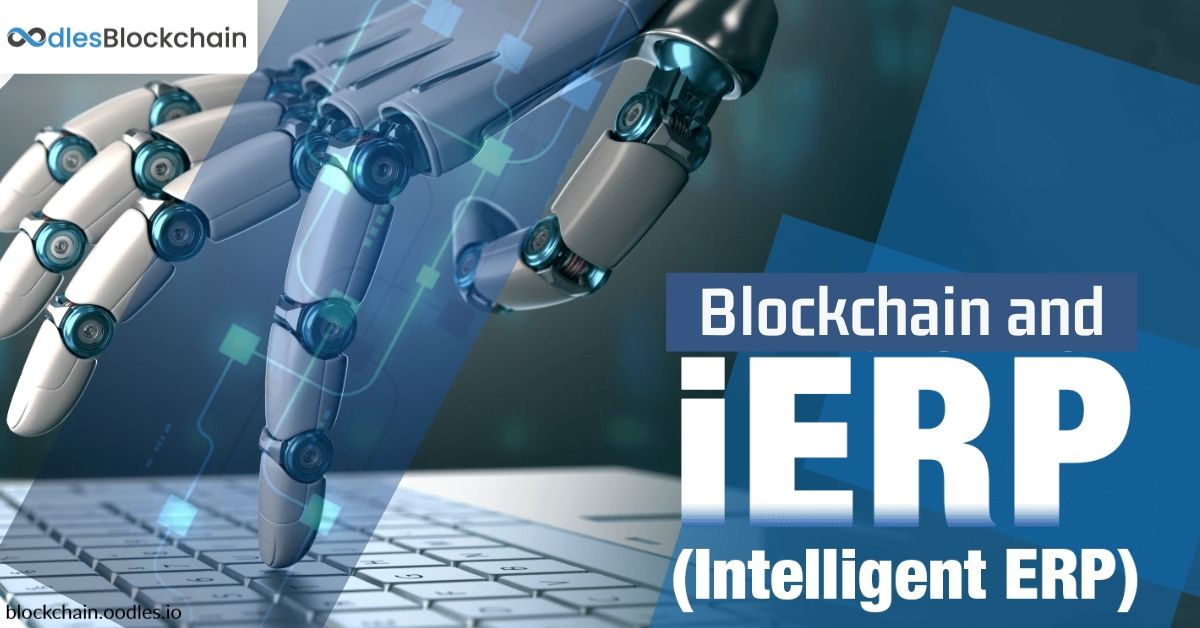-
The supply chain ecosystem consists of diverse value chain actors like manufacturers, suppliers, distributors, retailers, and customers. Supply chain management (SCM) involves efficient planning, execution, control, and monitoring of supply activities. Companies use ERP solutions to manage the physical aspects of supply that include storage, transportation, and effectively managing demand and supply to meet customer needs.
Challenges with Existing ERP Systems
Supply chain management directly affects the efficiency of the ERP system due to its complexity. Corporate buyers, manufacturers, suppliers, logistics providers, consumers demand greater visibility into the origin and movement of goods. They need more accurate and timely supply chain data to address inefficiencies and risks in value chains across the globe. Currently, there are no efficient means of synchronization of this information amongst multiple parties along the supply chain. Consequently, each organization records and maintains its version of the truth. In other words, every organization has its ERP system to manage the supply chain. It often leads to errors, high costs, and reputational and financial risks.
Legacy ERP systems require to go through massive amounts of customization to fit each individual organization's needs.
Addressing Them with Blockchain
Blockchain supply chain development and management can play a crucial role. These areas typically fall under the ERP systems domain. It is therefore unfathomable to say that blockchain will not have a significant impact on the ERP systems in the near future.
Blockchain enables buyers, suppliers, shippers, and other supply chain actors to transact in a trusted network while keeping everyone in sync, in real-time, and in strict privacy. Blockchain in the supply chain can facilitate global trading partners to transact securely. It also gives the provision to use consensus over shared facts to increase efficiency, transparency, and visibility.
A Blockchain solution can have a single version of any information. A solution in which the underlying ERP system undergoes the integration with blockchain. It ensures that all systems, rather than talking to each other, speak through a blockchain. Although this may require various integrations with IT systems, Blockchain will perhaps not replace existing ERP systems. Instead, it will supplement them by simplifying and strengthening the relationships among stakeholders.
More Benefits of Blockchain in Supply Chain Management Include:
- Immutability into the provenance of goods
- The elimination of reconciliation pain across multiple parties
- Real-time visibility across the value chain
- Ability to perform track and trace analysis, assess risks and accelerate physical and financial supply chains
Using Corda Blockchain to Increase Efficiency
Powered by R3 company, Corda is a business-friendly open-source blockchain platform that is suitable for next-gen technologies. Some benefits of Corda blockchain development are ensuring regulatory compliance, accelerating insurance claims management, and streamlining KYC processes
Business Benefits of Corda Blockchain Platform
Smart contracts on Corda enables a single source of truth for supply-chain records. Permissioned stakeholders can verify that at any given time. Therefore, delivering transparency across all parties.
Corda has the provision to provide solutions for a permissioned blockchain network development. It enables regulators as well to access information about the supply chain within a secure environment, and thus, reducing penalties for noncompliance.
All stakeholders can capture and verify various parameters like the origin, quantity, movement, location, and transfer of materials, raw ingredients, and finished products on-demand.
It enables stakeholders to gain control and complete visibility over the supplier network. It includes shipping, logistics, insurance, and more. Ultimately, it drives your business to grow faster and more profitably.
With a Corda blockchain, ERP systems can be more efficient. It can provide them the capability to understand the location and flow of products within the supply chain, from the stage of raw materials and manufacturing to post-delivery. Last but not the least, it can streamline record-keeping and reporting systems to ensure reliable manifests, bills of lading, certifications, and more.
Feature-Rich iERP Solutions Development with Blockchain and Other Technologies by Oodles
Having a feature-rich ERP software adds value to the entire chain, starting from material procurement to end-customer product delivery. An efficient ERP solution can coordinate and integrate three key flows to achieve maximum efficiency. They include material flows, information flows, and financial flows.
iERP Solutions Development
Now there are iERP solutions being deployed to address such challenges and enhance the efficiency of legacy ERP systems, with emerging technologies like AI, Blockchain, AR, and IoT. These technologies with ERP solutions enable cost optimization, effective resource planning, automation with increased efficiency, significant user adoption, and effective personalization across industries.
Smart Attendance System with Deep learning
Automate attendance management using facial recognition technology to trigger unauthorized access alerts.
Prediction and Personalization
Generate better product recommendations and personalize the customer experience with AR technology and prediction models
Distributed and Secure Data Exchange
Ensure the safety of all ERP data with blockchain technology’s distributed ledger to strengthen data security and enable high data availability
Transportation Cost Optimization
Reduce transportation costs with intelligent route planning enabled by Optaplanner and GPS tracking system integrations
Advanced Development
We have curated an assortment of AI, AR, IoT, blockchain technologies in which our developers have gained experience and certifications to provide iERP solutions.
- Streamlined Warehouse Operations
- Personalized Experience
- Forecasting and Inventory Prediction
- Enhanced Production
- Supply Chain Optimization
- Resource Optimization
- Customer Churn Prediction
- Lead Scoring
- Transportation Optimization

Our Offices
INDIA
Emaar Digital Greens, Sector 61,
Gurugram, Haryana
122011.
Welldone Tech Park,
Sector 48, Sohna road,
Gurugram, Haryana
122018.
















